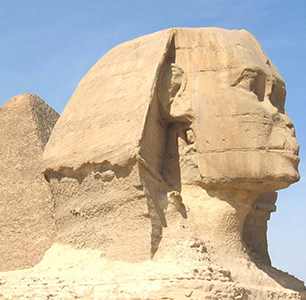It's business as usual for CACC at Cairo Cargo City
Egypt forecast the cargo volume at the airport to reach 800,000 tons or even 1 million tons by 2025
After the violent and tumultuous years that followed the Arab Revolutions in 2011, Egypt is back in full swing with its race to economic reforms.
The transcontinental country spanning between Africa, Asia and the Middle East remains struggling to have some sense of normalization on how to deal with its future development and crucial to this are entry points whereby free flow of trading goods and services can be achieved.
The new terminal at the Cairo International Airport’s Cairo Cargo City (CCC) offers a window of opportunity for Egypt to rebound with figures indicating the country’s agricultural products getting more in demand in Europe, the Middle East and Asia.
Egypt forecast the cargo volume at the airport to increase to 800,000 tons in 2025 or may even reach 1 million tons by then if the positive trend continues.
Cairo Airport Cargo Company (CACC), a private shareholding company which has been in the air freight industry since 1991, is among those strongly optimistic about the country’s future.
Positive signs
And all indications are there. Panalpina, a world leader in logistics and forwarding services, had chosen CACC’s terminal at CCC to establish its first country head office in Egypt in late 2016.
This year, CACC has been granted the license to operate a radioactive warehouse at CCC. Emirates SkyCargo also awarded CACC a multi-year agreement to provide cargo handling services to its 17 weekly flights to Cairo and to its one freighter per week route in the city.
In July 2017, the company also began providing tailor-made logistic solutions for all Saudia Cargo shipments bound for Egypt. Saudia Cargo operates about 20 flights per day to the country.
Apart from that, CACC continues its long-established partnership with major global carriers like Lufthansa Cargo AG, Qatar Airways, Etihad Airways, British Airways, Austrian Airlines, Aegean Airlines, Oman Air, DHL Aviation, Alitalia as well as various charter companies.
On August 7, the EU lifted the seven-year long ban on imports of Egyptian Arabian horses, enabling the Cairo International Airport to facilitate the shipment of eight live Egyptian horses to Frankfurt, Germany.
“We are honored to announce that this unique consignment was successfully handled at CACC new cargo terminal by the IATA certified CACC Live Animals Team. Upon their arrival to CACC export terminal three hours prior to flight departure, these unique beauties were delicately checked and carefully loaded into three horse containers/stalls to ensure maximum safety and comfort throughout the whole flight,” CACC said.
‘Egypt will recover’
Mahmud Ibrahim, managing director of CACC told Air Cargo Update in an interview in Paris where the company participated at the 28th Air Cargo Forum, their company has one of the biggest terminals in Africa and it was built on a vision that Egypt will once again become economically strong.
Ibrahim said 70 percent of Egypt’s exports are perishables and keeping this in mind, their company set up a warehouse with adequate space and temperature controlled facilities for items like fruits and vegetables.
 “In Egypt, the government is focusing to encourage export with good incentives. I believe in the coming years Egypt will have more market share in the export industry,” said Ibrahim who worked for Lufthansa in various top executive capacities before he was tapped to manage CACC. “Most perishables from Egypt go to Europe, Germany, London, other parts of the UK, in Arab countries like Saudi Arabia and the UAE.”
“In Egypt, the government is focusing to encourage export with good incentives. I believe in the coming years Egypt will have more market share in the export industry,” said Ibrahim who worked for Lufthansa in various top executive capacities before he was tapped to manage CACC. “Most perishables from Egypt go to Europe, Germany, London, other parts of the UK, in Arab countries like Saudi Arabia and the UAE.”
After Europe, China is fast becoming Egypt’s biggest trading partner with the volume of trade exchanges between them reaching $5.178 billion from January to June 2017.
Egypt’s exports to China year-on-year increased by 298.37 percent to reach $660 million while the Chinese exports to the country decreased by 20.79 percent to $4.518 billion.
Economic relations between the two countries are expected to flourish more with Egypt now part of the Silk Road Economic Belt trade union. At this year’s BRIC’s Summit, China pledged to invest $11.2 billion to Egypt’s economy.
“I’m very optimistic that Egypt will recover. This is my personal opinion,” the cargo executive added, noting that the country offers quality products and services but cheaper production and labor costs compared to others in the Arab world.
Egypt’s GDP is expected to grow by 3.9 percent this year, World Bank said, with private investments picking up in the second half of FY2017.
But the wealth gap remains wide with a significant percentage of Egypt’s more than 95 million people earning less than the equivalent of $2 a day.










